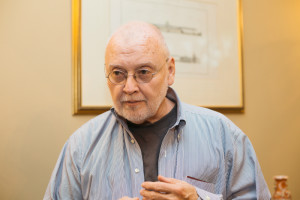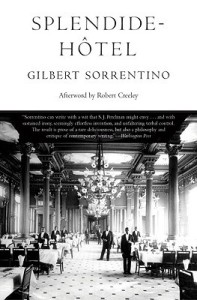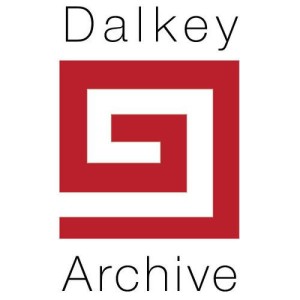David Wilk talks with John O’Brien of Dalkey Archive Press
January 26, 2016 by David
Filed under Publishing History, PublishingTalks
 Publishing Talks began as a series of conversations with book industry professionals and others involved in media and technology about the future of publishing, books, and culture. As we continue to experience disruption and change in all media businesses, I’ve been talking with some of the people involved in our industry about how publishing might evolve as our culture is affected by technology and the larger context of civilization and economics.
Publishing Talks began as a series of conversations with book industry professionals and others involved in media and technology about the future of publishing, books, and culture. As we continue to experience disruption and change in all media businesses, I’ve been talking with some of the people involved in our industry about how publishing might evolve as our culture is affected by technology and the larger context of civilization and economics.
I’ve now expanded the series to include conversations that go beyond the future of publishing. I’ve talked with editors and publishers who have been innovators and leaders in independent publishing in the past and into the present, and will continue to explore the ebb and flow of writing, books, and publishing in all sorts of forms and formats, as change continues to be the one constant we can count on.
It’s my hope that these conversations can help us understand the outlines of what is happening in publishing and writing, and how we might ourselves interact with and influence the future of publishing as it unfolds.
The latest in this series of interviews with publishers and editors is my talk with another old friend, John O’Brien, founder of Dalkey Archive Press and the Review of Contemporary Fiction. The journal began in 1981 and the press was launched in 1984. It’s a remarkable and singular enterprise, committed to publishing internationally as almost no other American publisher. Today the press and journal are based in Victoria, Texas through the auspices of the University of Houston at Victoria, and in Dublin, Ireland, with offices at the Trinity University.
If you are interested in the history of the press as explained by John himself, there is an excellent descriptive piece about Dalkey on its own website here. John places the Review (RCF) and the press (Dalkey) as coming literally from his own interest in writers of substance who were and still are not often included in the mainstream of literary culture. In that way, John and his publishing have always been self identified as outsiders, but of course through his own critical and publishing efforts, and other circumstances, no small number of the writers that have either been covered in RCF or published by Dalkey (or both) have reached a meaningful level of recognition and significance over these many years of the his work.
It is no small thing to have been at this work for so long, and so well. The internationalist tendency here is a strong one, from Luisa Valenzuela to Wallace Markham, to Flann O’Brien and many others, John has helped introduce an incredible range of writers from all over the world to North American readers, and vastly expanded the literary landscape for many of us. His commitment to a range of American writers like Paul Metcalf, Gilbert Sorrentino, Doug Woolf and many others, has been nothing short of heroic.
Writing on the Press’ own website, this is what John says about his goals for Dalkey and RCF: “I wanted the Press to define the contemporary period, or at least what I saw as what was most important in the contemporary period. Further, I wanted these books permanently protected, which is why from the start the Press has kept all of its fiction in print, regardless of sales. And as with the Review, I wanted the books to represent what was happening around the world rather than more or less being confined to the United States. Like the Review, Dalkey Archive Press was and is a hopelessly quixotic venture.”
In 2011, Dalkey Archive received a Lifetime Achievement Award from the National Book Critics Circle, and in 2015 John O’Brien was made a knight in the Orde des Arts et des Lettres for his contributions to publishing French literature abroad. Not bad for such a “hopelessly quixotic” operation.
John and I have many interests in common and count each others as friends and fellow travelers in literature and writing. Having this conversation about RCF and Dalkey, programs I believe have incalculable value to our literary culture, was a true pleasure for me, and one that I will always treasure.
Length alert: this is a longer conversation than most (68 minutes), but I hope will be well worth the time spent in listening. Thanks!

Podcast: Play in new window | Download
